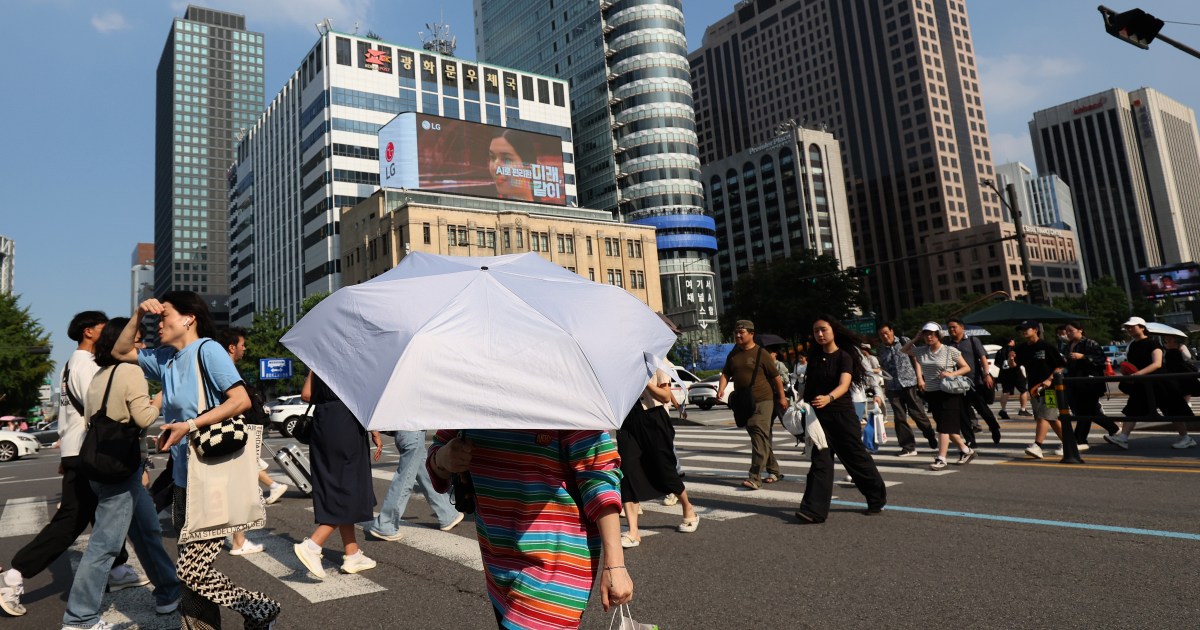A scorching heatwave has shattered a 117-year record for the number of sweltering nights in July.
The Korea Meteorological Administration (KMA) reported on Thursday that Seoul’s overnight temperatures did not drop below 29.3 degrees Celsius (84.7% Fahrenheit) as of yet, making it its 22nd “tropical night” this month.
A tropical night occurs when the temperature rises above 25 degrees Celsius (77 degrees Fahrenheit) between 6:01 p.m. and 9 a.m. the following day, according to the KMA.
The number of tropical nights in July is the highest since records began in 1908.
21 tropical nights, which was the previous record for July, was established in 1994.
Over the past week, South Korea has been dealing with blistering heat, with some places experiencing daily temperatures above 40 degrees Celsius (104 degrees Fahrenheit).
According to the Korea Disease Control and Prevention Agency (KDCA), at least 16 people have died from heat-related illnesses this year.
Scientists warn that human-driven climate change is causing more extreme weather to occur, which is in line with the recent trend of scorching temperatures across Asia.
Japan reported its hottest day in its history on Wednesday, with the mercury reaching 41.2 degrees Celsius (106.16 degrees Fahrenheit) in Tamba City, Hyogo Prefecture.
Japan and South Korea both reported earlier this month that June was the hottest on record, while China’s National Climate Center claimed that the nation had had had a record number of days with temperatures of 35 degrees Celsius (95 degrees Fahrenheit) or higher since mid-March.
After the heat index, which measures perceived temperature and humidity, reached 51.9 degrees Celsius (124.4%), the National Disaster Management Authority in India issued a red alert for New Delhi last month.
The country experienced the hottest day of the month in Chauk, according to Myanmar’s weather agency, when the temperature reached 48.2 degrees Celsius (118.8 degrees Fahrenheit) in the city’s central town in April.
According to scientists, Asia has been particularly susceptible to extreme temperatures, despite the fact that climate change is a problem worldwide.
The World Meteorological Organization reported in its most recent climate report that Asia was warming nearly twice as quickly as the world average.
Source: Aljazeera

Leave a Reply